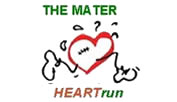Mothers’ knowledge on malaria and vector management strategies in Nyamira district, Kenya
Abstract
Background: Maternal knowledge on malaria and vector control measures are important because they enable mothers make an informed choice on the method of malaria control to use for their
children under five years.
Objective: To determine the mothers’ knowledge on malaria and vector control measures particularly use of insecticide treated nets.
Design: Cross sectional, descriptive study.
Setting: Eight health centres in Nyamira District, Kenya.
Subjects: Four hundred mothers bringing their children aged five years and below to the child health clinics.
Results: Mothers had a problem of defining malaria. Majority of them (91.8%) recognised mosquitoes as causing malaria. About 30% associated malaria with dirt, dirty compounds, dirty food/utensils, unboiled water and uncooked food. Many mothers identified basic malaria symptoms such as headache (70%), fever (68.8%), cold (65%), body or joint pain (65.5%) and abdominal pain/vomiting (0.5%). Mothers (40.8%)were less knowledgeable on most vulnerable groups to malaria.
A large number of mothers (55.5%) used nothing to protect themselves and their children under five years from mosquito bites. The radio (69%) tuned in the local language, played a very important role in the mothers’ knowledge about the use of mosquito nets and insecticide treated nets.
Conclusion: By virtue of the fact that majority of mothers (91.8%) recognised that mosquitoes caused malaria, it was an indicator that they were knowledgeable of its existence. Mothers were also informed of most of the malaria vector control measures particularly use of bed nets and insecticide treated nets. However, the general usage of those measures was very low.
children under five years.
Objective: To determine the mothers’ knowledge on malaria and vector control measures particularly use of insecticide treated nets.
Design: Cross sectional, descriptive study.
Setting: Eight health centres in Nyamira District, Kenya.
Subjects: Four hundred mothers bringing their children aged five years and below to the child health clinics.
Results: Mothers had a problem of defining malaria. Majority of them (91.8%) recognised mosquitoes as causing malaria. About 30% associated malaria with dirt, dirty compounds, dirty food/utensils, unboiled water and uncooked food. Many mothers identified basic malaria symptoms such as headache (70%), fever (68.8%), cold (65%), body or joint pain (65.5%) and abdominal pain/vomiting (0.5%). Mothers (40.8%)were less knowledgeable on most vulnerable groups to malaria.
A large number of mothers (55.5%) used nothing to protect themselves and their children under five years from mosquito bites. The radio (69%) tuned in the local language, played a very important role in the mothers’ knowledge about the use of mosquito nets and insecticide treated nets.
Conclusion: By virtue of the fact that majority of mothers (91.8%) recognised that mosquitoes caused malaria, it was an indicator that they were knowledgeable of its existence. Mothers were also informed of most of the malaria vector control measures particularly use of bed nets and insecticide treated nets. However, the general usage of those measures was very low.
Refbacks
- There are currently no refbacks.


